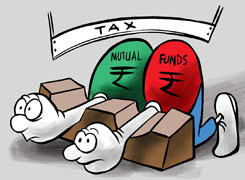1.85cr plot sold, 1.4cr new plot bought - save or invest remaining?
Ramalingam Kalirajan |10997 Answers |Ask -Follow
Mutual Funds, Financial Planning Expert - Answered on Feb 19, 2025
He has an MBA in finance from the University of Madras and is a certified financial planner.
He is the director and chief financial planner at Holistic Investment, a Chennai-based firm that offers financial planning and wealth management advice.... more

I have sold a plot worth for 1.85 cr... I have bought a plot worth 1.4 cr... can i keep the remaining in my saving account for house construction or do i put the balance amount in a cgas account
Capital Gains Tax Implication
Long-Term Capital Gains (LTCG): If the plot you sold was held for more than 2 years, the profit is considered long-term capital gains (LTCG) and is subject to tax.
Tax Rate: LTCG on real estate is taxed at 20% with indexation benefit.
Reinvestment for Tax Saving: You can save tax by reinvesting the gains in a residential property under Section 54F of the Income Tax Act.
Can You Keep Rs 45 Lakh in a Savings Account?
No, if you intend to claim tax exemption under Section 54F, you cannot keep the balance amount in a savings account beyond the due date for filing your Income Tax Return (ITR).
If you don't invest in a residential house before filing your ITR, you must deposit the unutilized amount in a Capital Gains Account Scheme (CGAS).
You must use the CGAS amount within 3 years for house construction.
What Should You Do?
If You Are Constructing a House
Deposit Rs 45 lakh in a CGAS account before the due date of filing your ITR.
Use this amount within 3 years for house construction to claim full tax exemption under Section 54F.
If You Are Not Constructing a House
The Rs 45 lakh will be taxed as LTCG, and you must pay 20% tax (after indexation benefits).
Consider other tax-saving options, like investing in bonds under Section 54EC (with a 5-year lock-in).
Final Insights
If you plan to construct a house, deposit the Rs 45 lakh in a CGAS account before filing ITR.
If you don’t use this amount within 3 years, it will be taxed as LTCG in the year of expiry.
If you don’t want to construct a house, be ready to pay LTCG tax or invest in 54EC bonds for tax saving.
Best Regards,
K. Ramalingam, MBA, CFP
Chief Financial Planner
www.holisticinvestment.in
https://www.youtube.com/@HolisticInvestment
You may like to see similar questions and answers below
Mihir Tanna |1093 Answers |Ask -Follow
Tax Expert - Answered on Jul 21, 2023
Tejas Chokshi | Answer |Ask -Follow
Tax Expert - Answered on Jul 22, 2023
T S Khurana |547 Answers |Ask -Follow
Tax Expert - Answered on Mar 03, 2025
Nayagam P P |10896 Answers |Ask -Follow
Career Counsellor - Answered on Jan 27, 2026
Nayagam P P |10896 Answers |Ask -Follow
Career Counsellor - Answered on Jan 27, 2026
T S Khurana |547 Answers |Ask -Follow
Tax Expert - Answered on Jan 27, 2026
T S Khurana |547 Answers |Ask -Follow
Tax Expert - Answered on Jan 27, 2026
T S Khurana |547 Answers |Ask -Follow
Tax Expert - Answered on Jan 27, 2026
Ramalingam Kalirajan |10997 Answers |Ask -Follow
Mutual Funds, Financial Planning Expert - Answered on Jan 27, 2026
Ramalingam Kalirajan |10997 Answers |Ask -Follow
Mutual Funds, Financial Planning Expert - Answered on Jan 27, 2026
Samraat Jadhav |2547 Answers |Ask -Follow
Stock Market Expert - Answered on Jan 27, 2026
Samraat Jadhav |2547 Answers |Ask -Follow
Stock Market Expert - Answered on Jan 27, 2026
Ramalingam Kalirajan |10997 Answers |Ask -Follow
Mutual Funds, Financial Planning Expert - Answered on Jan 27, 2026


























